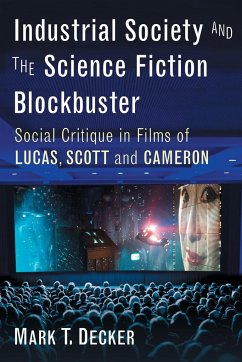Can blockbuster films be socially relevant or are they just escapist diversions to entertain the masses and enrich the studios? Not every successful film contains thoughtful commentary, but some that are marketed as pure entertainment do seriously engage social issues. Popular science fiction films of the late 1970s and early 1980s--such as George Lucas' Star Wars trilogy, Ridley Scott's Alien and Aliens, and James Cameron's Terminator films--present a critique of our engagement with technology in a way that resonates with 1960s counterculture. As challengers of the status quo's technological underpinnings, Luke Skywalker, Ellen Ripley and Sarah Connor echo the once-popular social criticism of philosopher Herbert Marcuse and speak directly to the concerns of people living in a technologically complex society. The films of Lucas, Scott and Cameron made money but also made us think about the world we live in.
Hinweis: Dieser Artikel kann nur an eine deutsche Lieferadresse ausgeliefert werden.
Hinweis: Dieser Artikel kann nur an eine deutsche Lieferadresse ausgeliefert werden.








